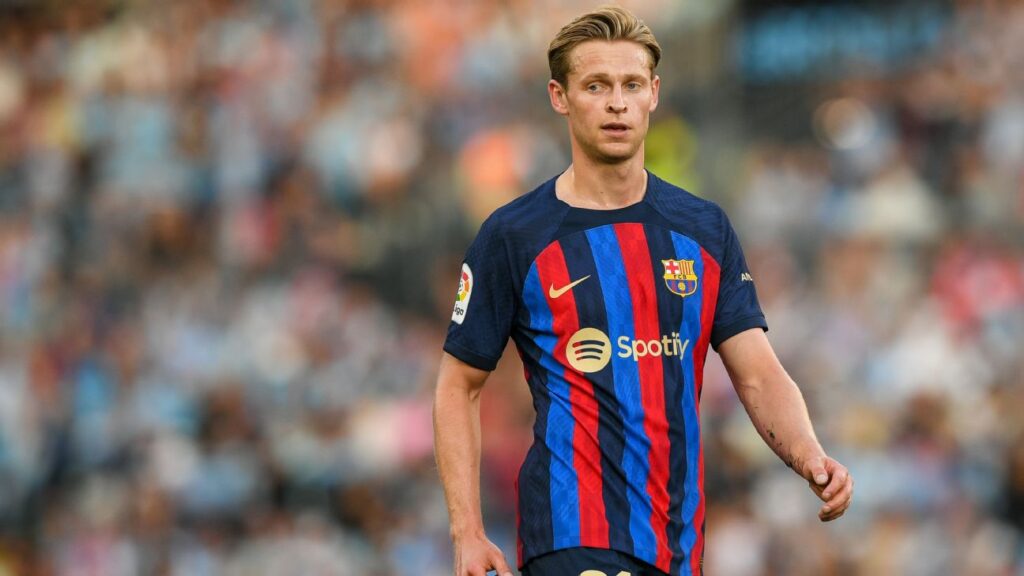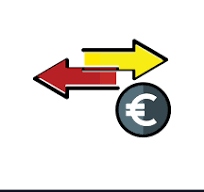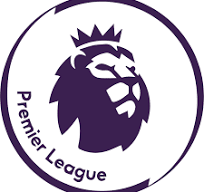
After four disappointing years, Frenkie De Jong has found a perfect role at Barcelona, and become one of the world’s most effective centre-midfielders

In mid-August, Frenkie de Jong gave an interview to Catalonian publication El Periodico. In a lengthy chat, he acknowledged that he nearly left Barcelona after a high-profile summer of transfer speculation in 2022. He admitted that he was aware of the criticism he so regularly received in his first few years at the club. But, crucially, he made it clear that he doesn’t ever want to play anywhere else.
De Jong is certainly saying these things because he wants a new contract – something Barca are reportedly willing to offer. But there is certainly some sincerity to his claims, too.
De Jong’s four years at Camp Nou haven’t gone exactly according to plan. He cost the Blaugrana €75 million (£65m/$85m) and looked like an imperfect fit from day one.
At first, he was being asked to fill a role he wasn’t made for. Then, he underperformed at a spot that seemed to suit him the most. He was almost sold to Manchester United at least once. But now, thanks to a number of tactical switches, and uncharacteristic patience from those in the front office, De Jong has come into his own.
The former Ajax midfielder has always possessed a unique skillset, one that had for some time needed a manager to set up a system that could maximise it. Xavi has done just that, turning De Jong into an indispensable part of a Barca side, a player who fills a niche role for a winning team, certainly worth every single penny of the exorbitant fee Barca paid for his services in 2019.
De Jong’s Barcelona tenure wasn’t supposed to be this tumultuous. When the Dutchman first arrived, he was a buzzing presence ready to lead Barcelona into the post-Sergio Busquets era.
He had just starred for an exciting Ajax team that had come within a miraculous Lucas Moura goal of reaching the 2019 Champions League final. De Jone was the maestro at the heart of a remarkable run, a then-21-year-old who pivoted, sliced, and pirouetted his way through Real Madrid’s midfield in the last 16.
The price tag seemed hefty – De Jong had only really had one outstanding season in an Ajax shirt – but the Blaugrana had been after him for over a year. This was, of course, the old Barcelona, the free-spending, use-the-company-credit-card machine that knew no budgetary constraints. Besides, €75m looked tame compared to the €160m (£142m/$176m) willingly had splurged on Philippe Coutinho just a few months before.
De Jong, in return, appeared ecstatic. There has long been a connection – familial and tactical – between Ajax and Barcelona. That Cruyffian link is perhaps one of the good unifying things in football. And De Jong was just the latest to embrace it.
“I am very happy to be here finally. As a child, it was a dream for me to play at Barca, and now I’m here, so it’s great. I’m really looking forward to setting foot on the Camp Nou pitch for the first time,” the Dutchman asserted upon his arrival.
It became clear fairly quickly that this iteration of Barcelona wasn’t the idealistic one he had mused about in his pre-season media duties. Although De Jong appeared to be a solid signing, the rest of Barca’s summer signings were erratic – and expensive.
The arrival of unproven Brazilian Malcom for €41m (£36m/$43m), and puzzling acquisition of Antoine Griezmann for €120m (£100m/$130m), painted a picture of a team lacking in direction.
Manager Ernesto Valverde had the Blaugrana playing well, but was sacked in January 2020 after losing in the Spanish Super Cup. Underwhelming option Quique Setien took his place and fared worse than his predecessor.
The obvious sense of coherent thinking at the very highest level of the club culminated in an infamous 8-2 loss to Bayern Munich in the Champions League. De Jong was part of a Barca midfield torn apart by the Bavarians, and played all 90 minutes as his side suffered one of the most embarrassing defeats in the club’s history. Setien was quickly dismissed – and took legal action against the club for unlawful termination of his contract.
This was not the Barcelona that De Jong had been promised.
And things didn’t get much better from there. Barcelona endured two miserable seasons, seeing club legend Lionel Messi leave, falling into financial ruin, and experiencing very little on-field success. Summer 2022 was supposed to represent something of a turnaround, with some shrewd transfer business – backed by risk financial transactions – poised to put the Blaugrana back on track. But for Barca, that meant sacrificing De Jong.
Xavi wasn’t particularly subtle in his efforts to drive De Jong out of Catalunya in July of 2022. The manager did everything possible to ensure that the midfielder didn’t play in his natural position during Barca’s summer tour of the US.
In fact, De Jong spent most of their preseason awkwardly stationed at centre-back, even starting a Clasico there, which led to him awkwardly stumbling through space as Real Madrid’s attack surged into the Barca defensive third.
It was a message of sorts. Not only would De Jong not be a guaranteed starter for his third season in Catalunya; he would also have to play an unfamiliar position, one that his manager knew he wasn’t the right fit for.
But De Jong refused to heed the warning. He reportedly turned down a move to Manchester United – despite cash-strapped Barca’s numerous efforts to get rid of him – and vowed to fight for his spot in the side.
His decision baffled many around the club, and although Joan Laporta later insisted that De Jong was never going to be sold, the fact that Barca accepted a hefty bid for his services showed that they were more than willing to let him go for the right fee.
The numbers suggest that De Jong had been consistently improving for a few years by the time he spurned United’s interest. His pass completion, ball recovery and interception numbers all improved in 2021, and held steady in 2022. Although his exact role was up for debate – and linked to a perceived positional clash with Sergio Busquets – there was, statistically at least, hope that De Jong could develop at Camp Nou.
He was, of course, not helped by the club’s reputation. Learning curves are not allowed for senior players at Barcelona. Those who are not good enough are either exiled or sold. At times it was De Jong’s price tag, not performance, keeping him in the side.
Xavi’s tactical adaptations, though, stirred something in the player. The manager had long asserted that De Jong could be a world-class talent, and set up a system to get the best out of him.
There had long been a fascination with deploying De Jong as a deep-lying playmaker for his team – operating, effectively, as a long-term replacement for Busquets. But De Jong was never really going to be that player. Barca, Xavi realised, needed a more physical presence in the role.
Instead, he carved out a new position for De Jong. The midfielder had thrived as part of a deep-lying duo at Ajax, functioning best with a more natural defensive presence alongside him. De Jong, in turn, would be the all-action option, someone to dominate the middle third of the pitch and rarely venture further forward – more Luka Modric than Busquets.
So, Xavi tinkered with the system, asking De Jong to start from a deeper position on the left, while relying on the attacking prowess of left-back Ajelandro Balde and advanced midfielder Gavi to do the damage in the final third. Busquets, meanwhile, was deployed to his right, and asked to dribble less, tackle more, and, crucially, get the ball to De Jong as much as possible.
A Culer for life?
The result was De Jong’s best season in blue and red so far. He didn’t score or assist at a prolific rate. But he didn’t have to. The numbers paint a picture of De Jong becoming very good at the crucial skills of a box-to-box midfielder.
Fundamentally, he received the ball a lot, and almost always looked to pass forward. He completed his most progressive passes in a season since his final year at Ajax – and did so more efficiently than at any other point in his career. His progressive carrying numbers – a metric of how often a player successfully dribbles forwards – were up, too. And, perhaps most importantly, he retained the ball at a higher rate.
Such a combination of ball retention and passing prowess is a skillset reserved for very few players in world football. Arguably only Modric does it better – or with more elegance. And perhaps that is now what will come to define De Jong’s Barcelona career.
For four years, he was an interesting player with a unique skillset – but no real space to showcase it in a winning team. Now, he has been utilised perfectly in a successful system. Xavi has, effectively, created a ‘De Jong’ role.
Perhaps he will be allowed to thrive there. At Ajax, De Jong was the next great box-to-box midfielder from a country that had produced countless talents.
Barcelona spent a handful of years trying – and failing – to get him back to his former self. Now, they have accepted that he can function as something else altogether. And that is where the real value is found, where a replaceable player becomes undroppable.
Talkfooty is not responsible for the contents of external sites









